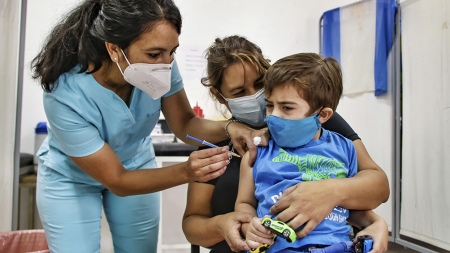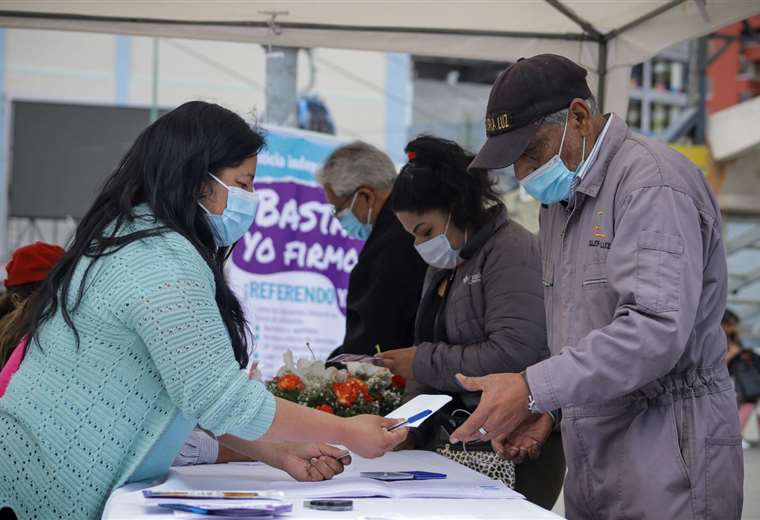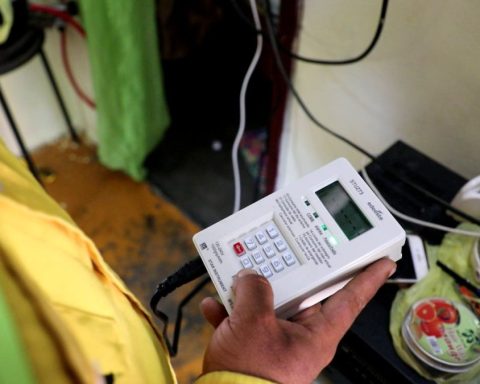One in six adult caregivers of girls, boys and adolescents up to 14 years of age assured that at some time a health professional recommended not to vaccinate the minor in chargeaccording to him Vaccine Access and Confidence Index (INCAV) 2022 which also showed a correlation between that recommendation and lower levels of trust and access.
On the other hand, this survey carried out at the end of last year on a federal sample of 7,299 cases shows that the age group with the lowest confidence index (CI) in vaccines are adolescents and young people between the ages of 15 and 20 “with a constant downward trend since 2019” which last year registered the historical minimum of 80.09 points on a scale of 1 (zero confidence) to 100 (full confidence).
“Vaccination has a direct impact on reducing the prevalence of diseases and deaths; Argentina has one of the most up-to-date and complete vaccination calendars in the world and even through official sources you can find out the coverage rate,” he said. Julio IchazoProject coordinator of the Foundation.
However, “we do not know what is behind” this indicator in terms of trust and accessibility, “nor how to understand the variations” in the perception of the population regarding the importance, safety and efficacy of vaccines in general, and the eventual presence of barriers to vaccination.
“The objective is to generate knowledge that enables improvements in the design of immunization programs and strategies, and more efficiently direct human and financial resources for public health,” he said.
“Vaccination has a direct impact on reducing the prevalence of diseases and deaths; Argentina has one of the most up-to-date and complete vaccination calendars in the world and even through official sources you can find out the coverage rate.”Julio Ichazo
As for the more general results, the study showed that the CI of the population in the vaccines during the past year was 85.9 points on a scale of 1 to 100, which implies that “it has interrupted its downward trend ” (it rose 0.5%) in relation to the 2021 measurement, “although it has not managed to recover the high levels existing before the pandemic” when it stood at 93.7 points, said Ichazo.
The CI is made up of three components -effectiveness, importance for children and safety- and was designed following the model of the Confidence Index of the London School of Hygiene and Tropical Medicine, which has been used since 2015 in different countries around the world.
This year’s results show that The number of people who think that vaccines are effective continues to decline – albeit slightly -88.5 versus 88 points- and of those who think they are important for children -89.1 versus 88-, while confidence in the safety of vaccines experienced a slight increase compared to the last two years, reaching 90.4 points, although without reach the figures for 2019 (95.9) “which explains the stabilization of the confidence index compared to previous years”.
And although the level of trust “is homogeneous between regions”, the City of Buenos Aires and its metropolitan area have a differentiated behavior because there “confidence continues to fall” while in the rest, “it has grown again”.

On the other hand, there is evidence of great variability in the evolution of the level of confidence according to the age group.
Thus, those between 21 and 30 years old increased their confidence by 3.59% (3 points) and something similar occurred among those between 31 and 40 years old (4.9 points), while the group between 41 and 50 remained stable in their perceptions (87.7 points).
Instead, andhe level of confidence in vaccines decreased among young people between the ages of 15 and 20, among whom the trend towards discrediting vaccines has been a constant since 2019.
Thus, that year they trusted the confidence index in vaccines in that group was 90.6 points, a figure that fell to 85.5 in 2020, to 81.6 in 2021 to reach the current historical minimum of 80.9.
“This information is worrying since they will soon be responsible for vaccinating their future children.”they indicated.
The level of trust also fell among those over 65 years of age – among whom it experienced a drop of 8% – but last year it had increased by a similar proportion and “this erratic and volatile behavior can be associated with the context as a risk group for pandemic”.
As a novelty this year, this year’s edition of the INCAV includes some adjustments in the access index based on indicators proposed by the WHO, which is why it is not possible to make a comparison with previous years.
“To refine the measurement, we included specific questions that focus on caregivers of children under 14 years of age, who are responsible for vaccination,” Ichazo said.
The access index in 2022 was 66.9 points out of 100 – where zero is null access – for those who care for girls, boys and adolescents under 14 years of age, and when care tasks are performed by women or people who identify with the female gender, access is facilitated (68.5 versus 64 points out of 100), “which is important since there is evidence that shows that they are the ones who are most involved in care tasks,” they said.
Meanwhile, the regions of the country in which caregivers experienced greater access to vaccines in 2022 were: Cuyo (73.1); Patagonia (72.3) and the Central region (70.2). And the regions where access was perceived as more difficult were GBA (62); NAE (63.5); CABA (64.8) and NOA (67.3).
“Differences of up to 10 points show that the concept of accessibility is not homogeneous in the country, but depends on provincial realities,” said Tomás Olego, a specialist in mathematical statistics at the Foundation.

On the other hand, accessibility varies even more strongly -up to 20 points- in relation to the educational level of the caregivers, and those with less schooling “seem to have the worst chances”.
One of the most alarming data in this section is that 17% of the interviewed caregivers stated that at some time a health professional recommended not to vaccinate the girls, boys or adolescents under their care; although it was not inquired about which particular vaccines were discouraged on those occasions or whether or not they were part of the mandatory schedule.
“If we take into account that the health professional is ‘the’ authority figure for caregivers in terms of vaccines, we have an opportunity to improve as a society in this regard,” added Olego.
The survey shows after that there is a correlation between that experience and confidence or access to vaccines: among those who received the suggestion not to vaccinate, the level of confidence in this treatment is significantly lower than among those who did not receive that advice (77.3 versus 87.3 points); and the same with the level of access (55.8 versus 69 points).
On the other hand, 12% of the caregivers consulted, the health professional did not ask if the minor in charge had his vaccination schedule up to date during the last medical check-up and 21% of those surveyed did not know the vaccines that due to your age and particular health situation.


















